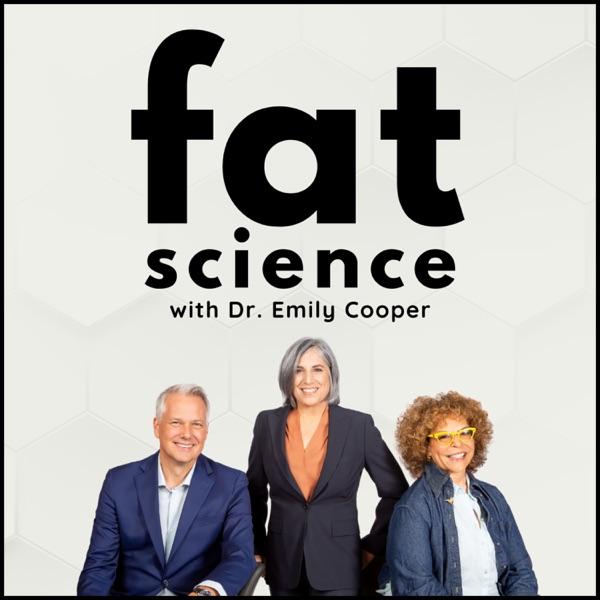

This week on Fat Science, Dr. Emily Cooper, Andrea Taylor, and Mark Wright break down five eye-opening research studies from 2025 that challenge everything you thought you knew about obesity, dieting, and metabolism.
The hosts explore surprising new evidence on fitness trackers, the metabolic power of joy (and dessert!), the risks of intermittent fasting, how yo-yo dieting can damage kidney health, and the permanent impact of dieting on your brain-gut connection.
Dr. Cooper shares clinical insights and explains why simple fixes—strict diets, calorie counting, and food restriction—can actually backfire, causing more harm than good. From the science of hormone signaling to the pitfalls of diet culture, the conversation reveals powerful new reasons to embrace flexibility, balance, and self-kindness on the journey to metabolic health.
Key Takeaways:
Personal Stories & Practical Advice:Andrea shares why dessert is a staple of her happiness—and how mental restriction backfires. Dr. Cooper gives real-world examples from patients: eating favorite foods can unlock better weight results, while “diet damage” often lingers until medical treatment repairs it.
Resources from the episode:Fat Science is a podcast on a mission to explain where our fat really comes from and why it won’t go and stay away. We are committed to creating a world where people are empowered with accurate information about metabolism and recognize that fat isn’t a failure. This podcast is for informational purposes only and is not intended to replace professional medical advice.
Check out our new website where you can ask a mailbag question. If you have a question for Dr. Cooper, a show idea, feedback, or just want to connect, email us at questions@fatsciencepodcast.com or dr.c@fatsciencepodcast.com.
Connect with Dr. Emily Cooper on LinkedIn.Connect with Mark Wright on LinkedIn.Connect with Andrea Taylor on Instagram.
REFERENCES FOR THIS EPISODEAlshurafa, N., et al. (2025). “More accurate fitness tracking for people with obesity.” *Scientific Reports*, Northwestern University Feinberg School of Medicine.Alfouzan, N.W., & Nakamura, M.T. (2025). “Reduced food cravings correlated with a 24-month period of weight loss and weight maintenance.” *Physiology & Behavior*, Vol. 291.Chen, H., Liu, C., Cui, S., et al. (2025). “Intermittent fasting triggers interorgan communication to suppress hair follicle regeneration.” *Cell*, Vol. 188.The Endocrine Society (2025). “Yo-yo dieting may significantly increase kidney disease risk in people with type 1 diabetes.” *Journal of Clinical Endocrinology & Metabolism*, February 2025.Fouesnard, M., et al. (2025). “Weight cycling deregulates eating behavior via the induction of durable gut dysbiosis.” *Advanced Science*, 2025